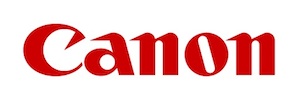Cary Sherburne: Hi, I’m Cary Sherburne, Senior Editor at WhatTheyThink.com, and I’m here with Chris Payne, who’s Vice President of Marketing from Kodak, as well as Jeff Ward, who’s Managing Director from Timsons. Welcome. So Jeff, why don’t we start by having you tell us a little bit about Timsons and your partnership with Kodak?
Jeff Ward: Firstly, it’s a pleasure to be here this morning. Timsons was founded in 1896 and for the last 30 years we have been involved in book manufacturing through traditional methods. Originally, we were in flexographic printing and then we had the revolution in to litho printing and now we’re moving into inkjet. Over that period of time, for the last 30 years, we’ve become absolutely the specialist and the market leader in monochrome, two color, and four color. And now through a partnership with Kodak we’re able to bring inkjet technologies to our customers.
Cary Sherburne: So you’re providing the paper transport platforms and all of that knowledge and expertise and then Kodak’s providing the printing technology?
Jeff Ward: Yes, absolutely. What we’re able to offer is a transport system that maximizes the inkjet potential but also we’re using all of our knowledge and understanding in finishing systems and I think that’s critical to us as well that we can use that knowledge that we’ve gained over the last 30 years and give our customers choices: litho or inkjet or other technologies as they come forward.
Cary Sherburne: Great. So Chris, perhaps you can tell us a little bit about what this partnership means for Kodak and for your customers.
Chris Payne: So this partnership is great because we’re able to extend the potential of the Kodak Prospera Writing System across many applications. So if you think of books, the Prospera presses are already installed at book manufacturings but Timsons takes it to the next level in terms of productivity and in terms of paper in to finish product out. They are the world’s best producer of those systems for the our book customers and they’ve been able to integrate our technology. The Prospera capability is truly tremendous in terms of its application breadth. So our relationship with Timsons is really a testament of where our technology is going and you’re going to see it in other applications, not just in books but Timsons is our partner for books. What they’re capable of doing is going to add real value to their customers as runs come down in the book market.
Cary Sherburne: So Jeff, these Timsons presses aren’t exactly narrow web are they?
Jeff Ward: No. That’s the nice thing about Timsons. We’re able to produce in litho terms up to 65 inches wide and through inkjet now we’re allowing ourselves to get up to 53 inches wide. So we’re able to offer our customers exactly the same paper widths on most of their productions they would have in their traditional litho. So in that respect, they don’t have to actually have second inventory of papers. They’re able to run their papers through the litho presses for the longer runs and now run the same papers through their digital presses.
Cary Sherburne: Yeah, and of course book printing has been a huge application for a production inkjet, and particularly for the Kodak Prospera heads and the Kodak Prospera systems. So tell me a little bit about how this gets put together from an end-to-end perspective through – you know, from input through finishing.
Jeff Ward: Yeah, at Timsons we’re – because we’re synonymous with high volume production, our view here is to do the same in inkjet. So in that respect we’re actually bringing in to play automated roll changes, we bring in to play tension control systems. Effectively, we’re building a litho press where the litho technology is removed and inkjet replaces it, but absolutely everything else around it is at a litho level. And I think if you look around at other inkjet providers, they don’t have that level of robustness.
Cary Sherburne: And what about the finishing part of it?
Jeff Ward: Yeah, again, on the finishing side we have two systems. Either the T-Fold or T-Book. T-Fold is a full folding system exactly the same as we would have in a litho press. So that means in the future as Kodak provide us with increases in speed, which will occur naturally, we will be able to take those increases in speed and these finishing systems will handle that, which again I think is pretty unique in the marketplace.
Cary Sherburne: That’s terrific. I want to thank both of you for sharing all this great information.

 Official camera partner of WhatTheyThink and the drupa daily.
Official camera partner of WhatTheyThink and the drupa daily. 












